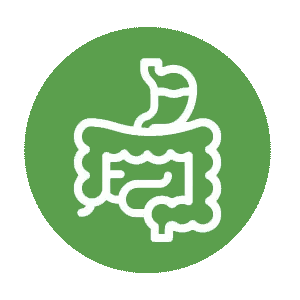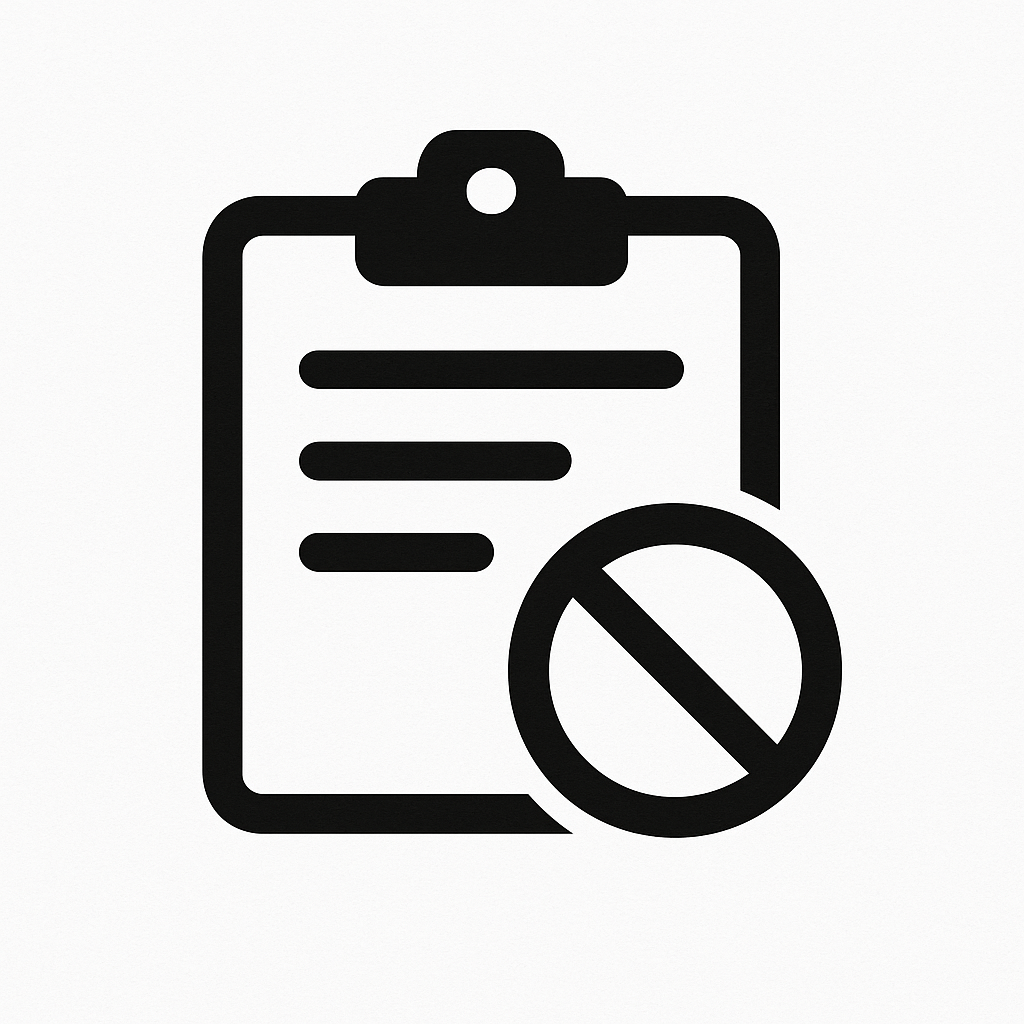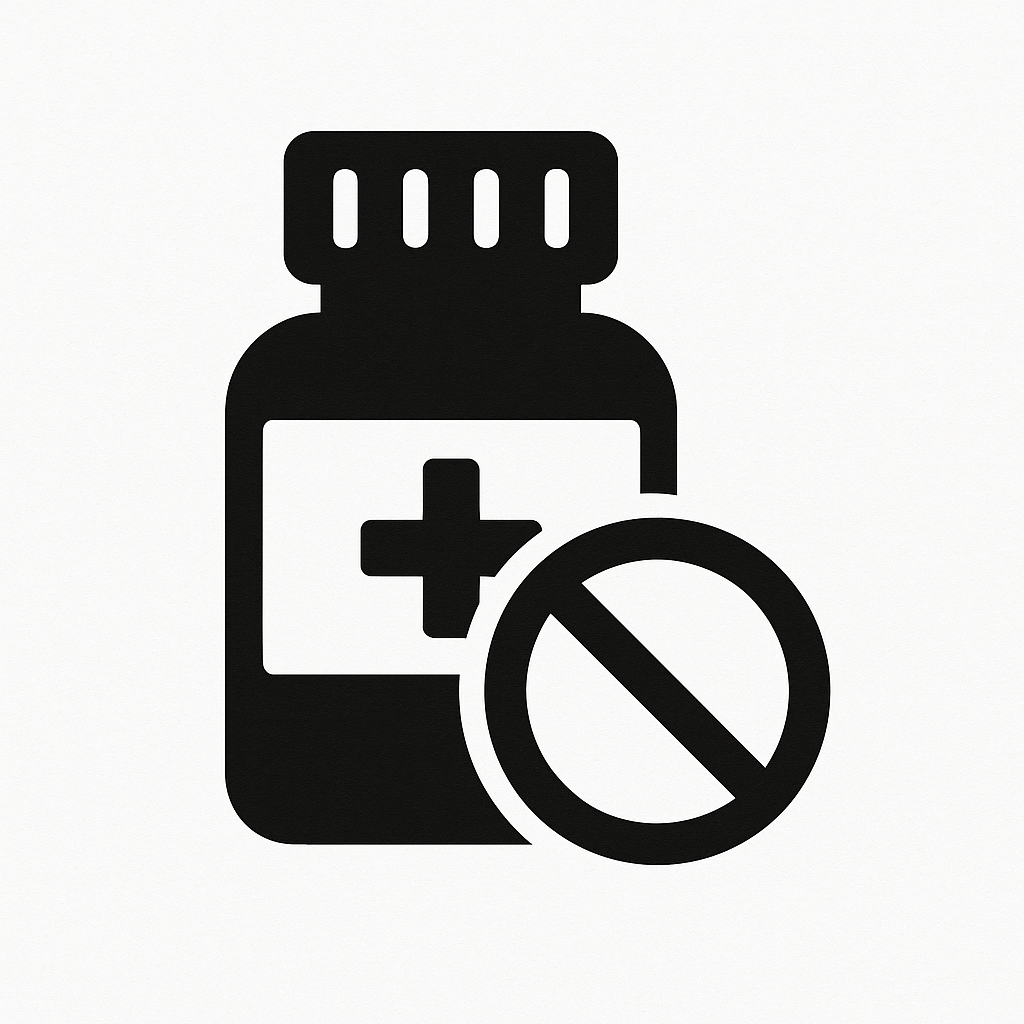
Bloating at Night Isn’t “Normal.” Here’s Why—Plus 7 Tips for Relief
If you've ever started your day with a relatively flat stomach only to look down by evening and wonder if you're somehow expecting a food baby, you're not alone. Nighttime bloating—that uncomfortable abdominal distension that worsens as the day progresses—affects countless people. Many dismiss it as "normal" or inevitable, but the truth is that persistent evening bloat signals underlying digestive issues that deserve attention.
While occasional mild bloating after a large meal is common, daily progression from comfortable mornings to uncomfortable, distended evenings indicates your digestive system isn't functioning optimally. The good news? Understanding why nighttime bloating happens empowers you to address it effectively and reclaim comfortable evenings and restful sleep.
Why Nighttime Bloating Isn't Normal
First, let's clarify what we mean by "normal." Yes, it's common for your abdomen to be slightly fuller in the evening than morning—you've consumed food and liquid throughout the day, after all. However, significant bloating characterized by visible distension, discomfort or pain, tight clothing that fit fine in the morning, and a hard, swollen belly is not normal and indicates digestive dysfunction.
Your digestive system should efficiently process food throughout the day without creating excessive gas, significant distension, or discomfort. When bloating becomes predictable and severe by evening, it's your body signaling that something in your digestive process isn't working correctly.
The Real Reasons Behind Nighttime Bloating
Understanding the mechanisms behind evening bloat is the first step toward solving it. Multiple factors typically combine to create this frustrating symptom:
Accumulation of Gas Throughout the Day
As you eat throughout the day, your digestive system produces gas as a normal byproduct of breaking down food. Bacteria in your intestines ferment certain carbohydrates, producing hydrogen, methane, and carbon dioxide. Additionally, you swallow air while eating, drinking, and talking.
In a healthy digestive system, this gas moves through your intestines and is expelled regularly without causing problems. However, when digestive motility slows or certain foods produce excessive gas, it accumulates throughout the day. By evening, the cumulative effect becomes noticeable and uncomfortable.
Slowed Digestive Motility
Your digestive system operates on circadian rhythms—internal biological clocks that regulate various processes. Research shows that digestive motility (the wave-like muscle contractions that move food through your system) naturally slows in the evening and during sleep.
This slowdown is normal and appropriate—your body shifts into rest and repair mode rather than active digestion mode. However, when combined with other factors like difficult-to-digest foods, large evening meals, or existing digestive issues, this natural slowdown can lead to significant bloating as food and gas sit in your system rather than moving through efficiently.
Large or Late Evening Meals
Many people consume their largest meal in the evening, often close to bedtime. This pattern works against your body's natural rhythms. Eating heavily when digestive function is naturally slowing means food sits in your stomach and intestines longer, allowing more fermentation and gas production.
Additionally, lying down shortly after eating impairs digestion further. Gravity assists digestive motility when you're upright, and reclining removes this assistance, potentially causing food to remain in your stomach longer than optimal.
Food Intolerances and Sensitivities
Many people have undiagnosed food intolerances or sensitivities that cause excessive gas production and bloating. The most common culprits include lactose (in dairy products), fructose (in fruits, honey, and high-fructose corn syrup), gluten (in wheat, barley, and rye), and FODMAPs (fermentable oligosaccharides, disaccharides, monosaccharides, and polyols found in various foods).
Because bloating from food intolerances typically appears 2-6 hours after eating, foods consumed during lunch or afternoon snacks often cause evening symptoms. This delayed reaction makes identifying problematic foods challenging without systematic tracking.
Small Intestinal Bacterial Overgrowth (SIBO)
SIBO occurs when bacteria that normally live in the large intestine migrate to the small intestine, where they don't belong. These bacteria ferment food prematurely, producing excessive gas and causing significant bloating.
SIBO characteristically causes bloating that worsens throughout the day as food accumulates in the small intestine and bacteria ferment it. People with SIBO often describe looking "pregnant" by evening despite normal morning appearance.
Constipation
Constipation doesn't just mean infrequent bowel movements—it includes incomplete evacuation, hard stools, or feeling like you can't fully empty your bowels. When waste material moves slowly through or accumulates in your colon, it creates physical distension and allows more bacterial fermentation, producing gas and bloating.
Constipation-related bloating typically worsens as the day progresses because waste continues accumulating without adequate elimination. By evening, the buildup becomes visible and uncomfortable.
Stress and Cortisol Patterns
Your body's stress hormone, cortisol, follows a daily pattern—highest in the morning, declining throughout the day. However, chronic stress disrupts this pattern and significantly impacts digestion through the gut-brain axis.
Stress diverts blood flow away from the digestive system, slows digestive motility, increases inflammation, and alters gut bacteria composition. For many people, stress accumulates throughout the day, reaching its peak in the evening when digestive function should be winding down. This combination creates the perfect conditions for bloating.
Hormonal Fluctuations in Women
Women often notice that bloating severity varies with their menstrual cycle. Progesterone, which rises after ovulation and during the luteal phase, slows digestive motility. Additionally, hormonal shifts can cause water retention.
Many women experience worse bloating in the week or two before menstruation, with evening symptoms becoming particularly pronounced during this time.
Eating Too Quickly and Poor Food Combining
Modern life often means eating quickly while multitasking—at your desk, in the car, or while scrolling through your phone. Eating rapidly causes you to swallow more air and doesn't give your brain time to register fullness, often leading to overeating.
Additionally, inadequate chewing means larger food particles reach your stomach, requiring more time and effort to break down. This extended digestive process increases fermentation and gas production.
7 Tips for Nighttime Bloating Relief
Now that you understand the causes, let's explore practical strategies to prevent and relieve evening bloat:
1. Eat Your Largest Meal at Lunch, Not Dinner
Align your eating patterns with your body's natural digestive rhythms. Your digestive system functions most efficiently during daylight hours when you're active and upright.
Make lunch your main meal, containing the most calories and largest portions. Keep dinner lighter—focus on easily digestible proteins and cooked vegetables. Aim to finish dinner at least 3-4 hours before bed to allow adequate digestion before lying down.
This pattern may require significant lifestyle adjustment, but many people find it dramatically reduces evening bloating while providing better energy throughout the day.
2. Identify and Eliminate Food Triggers
Systematic elimination can help identify foods causing your bloating. Common culprits to investigate include:
Dairy products if you have lactose intolerance. High-FODMAP foods like onions, garlic, wheat, beans, and certain fruits. Carbonated beverages that add gas to your system. Artificial sweeteners like sorbitol, xylitol, and mannitol. Cruciferous vegetables like broccoli, cauliflower, and cabbage. Processed foods high in sodium causing water retention.
Consider keeping a food and symptom journal for 2-3 weeks, noting everything you eat and rating bloating severity each evening. Patterns often emerge that identify your specific triggers.
For comprehensive support while identifying triggers, explore the Matevara gut health and digestive support collection, which offers products designed to support digestive function during dietary adjustments.
3. Eat Slowly and Chew Thoroughly
This simple practice has profound effects on digestion. Chewing thoroughly breaks food into smaller particles, making it easier to digest. It mixes food with saliva containing digestive enzymes that begin carbohydrate breakdown. Eating slowly allows your brain to register fullness signals, preventing overeating. It reduces air swallowing that contributes to gas and bloating.
Aim to chew each bite 20-30 times before swallowing. Put your fork down between bites. Avoid eating while distracted by screens or work. Make meals a mindful experience rather than something to rush through.
4. Support Digestive Function with Targeted Supplements
Several supplements can significantly reduce bloating:
Digestive Enzymes: Taking digestive enzymes with meals helps your body break down proteins, fats, and carbohydrates more efficiently, reducing fermentation and gas production. This is particularly helpful for people who struggle with certain food groups.
Probiotics: High-quality probiotics support healthy gut bacteria balance, which influences digestion, inflammation, and gas production. Consistent probiotic use over several weeks can reduce chronic bloating for many people.
Magnesium: Magnesium supports muscle relaxation throughout the digestive tract and helps maintain regular bowel movements. Many people are deficient in magnesium, and supplementation can reduce constipation-related bloating.
Ginger: Ginger supplements or tea stimulate digestive motility, reduce inflammation, and help gas move through your system rather than accumulating.
The Matevara gut health and digestive support collection provides carefully formulated products that address multiple aspects of digestive wellness to help reduce bloating and improve overall gut function.
5. Stay Physically Active Throughout the Day
Regular movement stimulates intestinal motility, helping food and gas move through your digestive system efficiently. Physical activity reduces stress, which improves digestion. Exercise supports regular bowel movements and overall metabolic health.
You don't need intense workouts—gentle, consistent movement works well. Take short walking breaks every 1-2 hours during work. Do light stretching or yoga in the evening. Take a 10-15 minute walk after dinner to stimulate digestion.
Avoid lying down immediately after eating. Remain upright for at least 2-3 hours after meals to allow gravity to assist digestion.
6. Manage Stress and Support Your Gut-Brain Axis
Given the powerful connection between stress and digestion, stress management isn't optional—it's essential for digestive health.
Implement stress-reduction practices including deep breathing exercises throughout the day, meditation or mindfulness practice, adequate sleep (7-9 hours nightly), regular physical activity, and time for hobbies and relaxation.
Many people notice dramatic improvements in bloating when they address chronic stress, even without other dietary changes.
7. Consider Targeted Interventions for Underlying Issues
If bloating persists despite lifestyle modifications, consider professional evaluation for underlying conditions:
SIBO Testing: If you suspect SIBO based on symptoms (bloating that worsens with fiber, carbohydrates, or probiotics), breath testing can diagnose it. Treatment typically involves antibiotics followed by diet modifications and specific probiotics.
Food Intolerance Testing: While elimination diets remain the gold standard, some testing can identify sensitivities. Testing for lactose intolerance, celiac disease (which requires gluten consumption before testing), and other specific intolerances may provide answers.
Comprehensive Stool Testing: Advanced stool tests can reveal information about gut bacteria balance, digestive enzyme function, inflammation markers, and gut health indicators.
Hormone Testing: For women with cyclical bloating patterns, hormone testing might reveal imbalances contributing to symptoms.
Working with a gastroenterologist, functional medicine practitioner, or registered dietitian specializing in digestive health can provide personalized guidance and appropriate testing.
Additional Strategies for Immediate Relief
When bloating strikes despite your best prevention efforts, these techniques can provide relatively quick relief:
Peppermint Tea: The menthol in peppermint relaxes digestive muscles and helps trapped gas move through your system. Drink a cup of hot peppermint tea when bloating occurs.
Gentle Yoga Poses: Certain yoga positions encourage gas release including child's pose, wind-relieving pose (lie on your back and pull knees to chest), seated spinal twist, and cat-cow pose.
Abdominal Massage: Gentle clockwise massage around your navel stimulates intestinal motility and helps move gas. Use light to moderate pressure in circular motions for 5-10 minutes.
Warm Compress: Applying warmth to your abdomen can relax muscles and provide comfort. Use a heating pad or warm water bottle for 15-20 minutes.
Walking: A short 10-15 minute walk can stimulate digestion and help gas move through your system naturally.
When to See a Doctor
While nighttime bloating is often manageable with lifestyle changes, certain symptoms require medical evaluation:
Sudden onset of severe bloating. Bloating accompanied by significant pain. Unintentional weight loss. Blood in stool. Persistent changes in bowel habits. Bloating that doesn't improve with dietary changes after 4-6 weeks. Vomiting or difficulty eating due to bloating. Bloating accompanied by fever.
These symptoms may indicate conditions like celiac disease, inflammatory bowel disease, ovarian issues in women, or other conditions requiring professional diagnosis and treatment.
The Power of Consistency
Resolving chronic nighttime bloating typically requires consistent application of multiple strategies rather than a single quick fix. Most people need 2-4 weeks of consistent dietary and lifestyle modifications before noticing significant improvement.
Be patient with yourself and your digestive system. Years of suboptimal function won't reverse overnight, but with persistent effort, most people can dramatically reduce or eliminate evening bloating.
Track your progress by taking photos of your abdomen at the same time each evening, rating bloating severity on a scale of 1-10 daily, noting which foods and strategies seem most helpful, and monitoring energy levels, sleep quality, and overall wellbeing.
This documentation helps you identify what works for your unique body and provides motivation as you see progress over time.
The Bottom Line
Nighttime bloating isn't something you have to accept as inevitable. It's a signal from your body that your digestive system needs support. By understanding the mechanisms behind evening bloat and implementing targeted strategies—from adjusting meal timing and identifying food triggers to supporting gut bacteria and managing stress—you can reclaim comfortable evenings and better overall health.
Start with the strategies that feel most manageable and gradually incorporate others. Many people find that addressing one or two factors creates a domino effect, making other improvements easier and more effective.
For comprehensive support on your journey to better digestive health, visit the Matevara gut health and digestive support collection to discover products specifically formulated to address the root causes of bloating and support optimal digestive function.
Remember, your body is designed to digest food efficiently without causing daily discomfort. With the right support and strategies, you can wake up comfortable and stay that way all day long.
Medical Disclaimer: This article is for informational and educational purposes only and is not intended as medical advice, diagnosis, or treatment. The information provided about nighttime bloating and digestive issues is not meant to diagnose, treat, cure, or prevent any disease or medical condition. While bloating is often related to diet and lifestyle factors, it can sometimes indicate serious underlying conditions including celiac disease, inflammatory bowel disease, ovarian conditions in women, bowel obstruction, or other medical issues requiring professional evaluation and treatment. Individual responses to dietary changes and supplements vary significantly based on personal health status, existing conditions, medications, and specific digestive characteristics. Always consult with a qualified healthcare professional before making significant dietary changes, using supplements, or if you experience persistent or severe digestive symptoms. Never ignore severe symptoms or delay seeking medical care because of information in this article. If you experience severe abdominal pain, unexplained weight loss, blood in stool, persistent vomiting, or other concerning symptoms, seek immediate medical attention.
FDA Disclaimer: These statements have not been evaluated by the Food and Drug Administration. The products and strategies discussed in this article are not intended to diagnose, treat, cure, or prevent any disease. Dietary supplements including probiotics, digestive enzymes, and herbal remedies are not regulated in the same manner as pharmaceutical drugs.
DSHEA Notice: Under the Dietary Supplement Health and Education Act (DSHEA) of 1994, probiotics, digestive enzymes, and other supplements are classified as dietary supplements when marketed as such. Manufacturers and distributors are responsible for ensuring safety before marketing, and any health claims must be substantiated and not misleading. Dietary supplements are not intended to replace a balanced diet, healthy lifestyle, or medical treatment.
Supplement and Medication Interactions: Dietary supplements including probiotics, digestive enzymes, magnesium, and herbal remedies can interact with prescription and over-the-counter medications. Digestive enzymes may affect diabetes medications. Magnesium can interact with antibiotics, blood pressure medications, and bisphosphonates. Probiotics may not be appropriate for people with compromised immune systems or central line catheters. Peppermint can worsen acid reflux in some individuals. Always disclose all supplements to your healthcare provider to avoid potentially dangerous interactions.
Individual Results Disclaimer: Results from implementing these strategies vary widely between individuals based on numerous factors including the underlying cause of bloating, current digestive health, diet quality, stress levels, sleep patterns, existing medical conditions, medications, and consistency of implementation. Some people may experience dramatic improvements while others may notice minimal effects. The information provided represents general guidance and should not be interpreted as personalized medical advice or a guarantee of specific outcomes.
Underlying Conditions: Persistent bloating may indicate underlying conditions requiring medical diagnosis and treatment including Small Intestinal Bacterial Overgrowth (SIBO), Irritable Bowel Syndrome (IBS), celiac disease or gluten sensitivity, lactose intolerance or other food intolerances, inflammatory bowel disease (IBD), gastroparesis, ovarian conditions in women, or structural digestive abnormalities. These conditions require professional evaluation and management. The strategies in this article may provide symptom relief but do not replace appropriate medical diagnosis and treatment.
Pregnancy and Breastfeeding: Some recommendations in this article may not be appropriate for pregnant or breastfeeding women. Certain herbal remedies and supplements should be avoided during pregnancy and lactation. Pregnant women experiencing bloating should consult healthcare providers, as it can sometimes indicate complications requiring medical attention. Always discuss supplements and significant dietary changes with your obstetrician or midwife if you are pregnant or nursing.
Testing and Diagnosis: While this article discusses various conditions that can cause bloating, it does not replace proper medical testing and diagnosis. If you suspect SIBO, food intolerances, or other digestive conditions, work with qualified healthcare providers who can order appropriate tests, interpret results, and develop evidence-based treatment plans. Self-diagnosis and self-treatment can delay proper care for serious conditions.
FTC Disclosure: This article contains affiliate links to products. We may receive compensation if you make a purchase through these links. However, this does not influence our content, and we only recommend products we believe may be of value to our readers. The information provided is based on available research and should not be interpreted as a guarantee of results.
Quality and Sourcing: The quality, purity, and potency of digestive supplements including probiotics, enzymes, and herbal products vary significantly between manufacturers. Choose products from reputable companies that provide third-party testing results, transparency about sourcing and manufacturing processes, and appropriate storage instructions. This article does not endorse specific brands except where explicitly stated. Research products carefully and select high-quality options from trusted sources.
Not a Substitute for Medical Care: The strategies discussed in this article should not replace professional medical diagnosis, treatment, or monitoring. Persistent bloating, chronic digestive issues, or symptoms that significantly impact quality of life require comprehensive medical evaluation by qualified healthcare providers. These approaches may be used as complementary strategies alongside, not instead of, appropriate medical care. Never discontinue prescribed treatments or medications without consulting your healthcare provider.
Elimination Diets: Elimination diets should be undertaken carefully and ideally under professional guidance, particularly if eliminating multiple food groups. Improper elimination diets can lead to nutritional deficiencies. If you suspect multiple food intolerances, work with a registered dietitian who can help you identify triggers while maintaining adequate nutrition.
Emergency Situations: Certain symptoms require immediate medical attention rather than home management. Seek emergency care for severe abdominal pain, inability to pass gas or have bowel movements, persistent vomiting, abdominal rigidity or hardness, fever with abdominal pain, or sudden onset of severe bloating. These symptoms may indicate serious conditions including bowel obstruction, appendicitis, or other emergencies requiring urgent medical intervention.
Share








